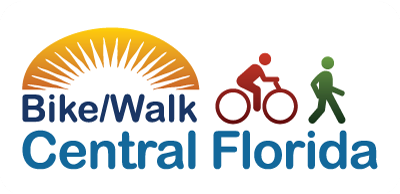 This football season UCF will debut a $1 million tiki bar in its stadium, complete with fruity adult beverages.
This football season UCF will debut a $1 million tiki bar in its stadium, complete with fruity adult beverages.
A couple of years ago the university unveiled a student-housing project that featured spa-style amenities, including a resort-worthy pool, Finnish sauna, fitness center, 60-inch flat-screens in every unit — and (why not?) another tiki hut. (Mai tais with pre-med study group, anyone?)
No one can accuse the University of Central Florida of skimping on student luxury.
But basic necessities — such as safe street crossings?
That can wait.
Large, landscaped median refuge concept. (Courtesy of Orange County) (Orange County)
At least, that’s been the attitude of so far among UCF administrators, who have shown a stunning lack of urgency when it comes to improving the deadly roads that border their campus. Eleven people — including two students just last year — have died trying to cross streets near UCF in the past eight years.
We may be on the verge of a breakthrough.
Orange County transportation gurus this week presented a series of potential changes for Alafaya Trail and University Boulevard.
Orange County went a step further and said it would even pay for some of the improvements on Alafaya, a state-run road.
“The county has made a very bold statement,” said Brian Sanders, chief transportation planner. “But we need somebody to maintain [those improvements].”
That’s the county’s way of saying, We’re in. What about you, UCF? What about you, DOT?
UCF spokesman Chad Binette told me the university plans to contribute, but it’s too early to know the details yet.
Traffic moves through the intersection of Alafaya Trail and University Boulevard at the edge of the UCF campus on Wednesday, August 19, 2015. (Stephen M. Dowell/Orlando Sentinel) (Stephen M. Dowell / Orlando Sentinel)
“We are pleased that Orange County stepped forward this week with a major contribution toward the design and construction of additional safety features,” Binette said. “We expect to receive estimates for maintenance costs from Orange County in the next few weeks, and that will help us work with our partners to determine the specifics of our investment.”
This could be big.
After a study — which showed that 259 pedestrians or cyclists have been hit by cars in the area since 2006, resulting in 207 injuries and those 11 fatalities — UCF, the state and the county say they are committed to making some changes. Finally.
Before we start clinking Bud Light bottles at the tiki hut, there’s plenty to still be worked out.
The committee that’s been studying the issue hasn’t yet finalized its recommendations.
Possibilities include larger medians with trees and shrubs, giving students a midpoint refuge in the nine-lane intersection at Alafaya and University. Maybe wider sidewalks, more crosswalks, even a pedestrian bridge over Alafaya.
The presentation at the study committee this week noted the pedestrian bridge is the most expensive item on the menu of improvements.
A bridge would cost an estimated $5.7 million, compared with $9.6 million for all the other improvements combined.
Of course, sticker shock didn’t stop the county from spending $8 million on a pedestrian bridge that will span International Drive from the convention center to the Hyatt, and $4.5 million for a bridge to service Universal Orlando’s guests.
Are the lives of tourists worth more than students’ lives?
Sanders says the issue is whether the bridge will work in the university area.
He said the study showed the students are crossing at many points along Alafaya rather than a single point.
“The odds of finding one or two locations and having people actually climb the stairs or ramps and use them?” he said. “There’s a lot of people who have doubts.”
Potentially more effective, he said, might be midblock crossings that let people on foot or bicycles push a button and signal a yellow flashing light so that cars stop while they cross.
The county installed such a crossing on Universal Boulevard near I-Drive, and it’s worked.
Missing from the list of changes is lowering the 45 mph speed limit.
Forty-five is way too fast for a road that borders the second-biggest university in the nation.
No matter what changes are decided, they need to be done soon — and not on the cheap.
Students and their parents may be lured to UCF by its luxury amenities.
But how much will that matter if they can’t cross the street without risking their lives?
bkassab@tribpub.com
Story originally published, here.
Copyright © 2015, Orlando Sentinel

